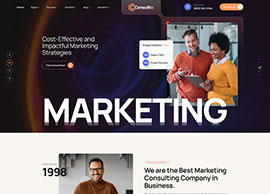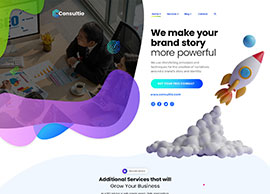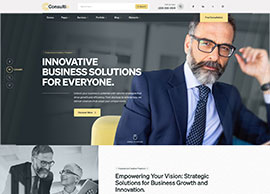You’ve spent hours applying for jobs online. You’ve found positions that match your skills, and you’re sure you’re qualified. Yet, your inbox remains empty. No calls for interviews, no follow-ups—nothing but silence.
If this sounds familiar, the problem might not be your qualifications. It might be your resume. A resume’s job isn’t just to list your work history; it’s to tell a compelling story in 6 seconds or less. That’s the average time a recruiter spends on it. Any mistake in that short window can mean the difference between an interview and the reject pile.
At Learn with Lovelyn, we’ve helped countless professionals transform their resumes from a simple list of duties into a powerful marketing tool. Based on our experience, here are the top 5 mistakes that are likely costing you interviews, and how to fix them.
Mistake #1: The One-Size-Fits-All Resume
The biggest mistake you can make is sending a generic resume to every job. Recruiters can spot this immediately. They are looking for a candidate who has taken the time to understand their specific needs, and a non-tailored resume screams, “I didn’t bother to learn about your company.”
How to Fix It: Before applying to any job, carefully read the job description. Identify the key skills, keywords, and responsibilities they mention. Then, customize your resume to highlight your experience that directly relates to those points. Use the same language they use in their job posting. For instance, if the job description mentions “client relationship management,” don’t just say “managed clients”—use their specific phrasing.
Mistake #2: Focusing on Responsibilities, Not Accomplishments
Your resume should not be a list of your daily tasks. Nobody cares what you were “responsible for.” What they care about is what you achieved. Did you improve a process? Did you increase sales? Did you train a team?
How to Fix It: Shift your mindset from “duties” to “achievements.” For every bullet point, ask yourself: “What was the result of this action?” or “How did this benefit the company?” Use the STAR method (Situation, Task, Action, Result) to frame your accomplishments. Use numbers and metrics to quantify your success.
- Weak: Responsible for social media management.
- Strong: Grew the company’s social media following by 45% in six months by developing a new content strategy, leading to a 20% increase in web traffic.
Mistake #3: A Passive Voice and Weak Action Verbs
The language you use on your resume matters. Starting every bullet point with a weak, passive verb or a generic phrase like “duties included” robs your accomplishments of their power. Your resume should be a dynamic document that showcases your impact.
How to Fix It: Start every bullet point with a strong, active verb. Think about the effect you had and choose a verb that reflects it. Instead of “helped to,” use “assisted” or “facilitated.” Instead of “worked on,” use “developed,” “designed,” or “implemented.” Use verbs like led, launched, created, drove, increased, negotiated, optimized, streamlined, trained, or managed. These words immediately convey action and impact.
Mistake #4: Typos and Grammatical Errors
Nothing can send your resume to the discard pile faster than a glaring typo or grammatical error. It signals a lack of attention to detail and a lack of professionalism. In an age where even a small error can lead to a significant problem, this is a major red flag for recruiters.
How to Fix It: Don’t rely on your own eyes. Read your resume out loud, backwards. This forces you to focus on each individual word, making it easier to spot mistakes. Use multiple spell-checkers, but don’t stop there. Have a friend or a family member proofread it. A fresh pair of eyes can catch errors you’ve overlooked a hundred times.
Mistake #5: Poor Formatting and Readability
A cluttered, disorganized, or visually overwhelming resume is an immediate turn-off. If a recruiter can’t find the information they’re looking for within a few seconds, they will move on. This includes using small fonts, weird formatting, or a lack of white space.
How to Fix It: Prioritize a clean, professional, and easy-to-read layout. Use a simple, standard font like Arial, Calibri, or Times New Roman. Ensure there is plenty of white space between sections. Use bolding, italics, and bullet points strategically to guide the reader’s eye. A well-formatted resume shows that you respect the recruiter’s time.
Ready for Your Next Interview?
Your resume is your first impression. By avoiding these five common mistakes, you can significantly increase your chances of landing an interview. Remember, the goal is not just to inform, but to impress. A strategic, well-written resume is the key to unlocking new career opportunities.
If you’re still struggling to get past the initial screening, our Resume Revamp service is designed to help you create a powerful, keyword-optimized, and accomplishment-driven resume that stands out. Let us help you tell your story and land the interview you deserve.


















































